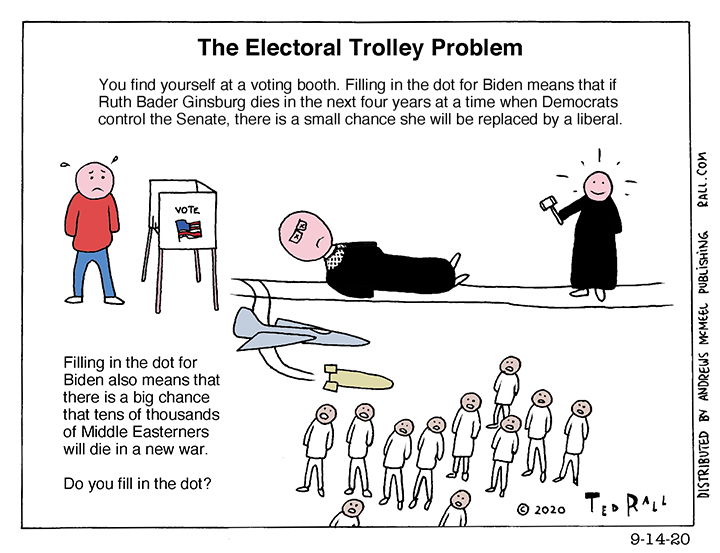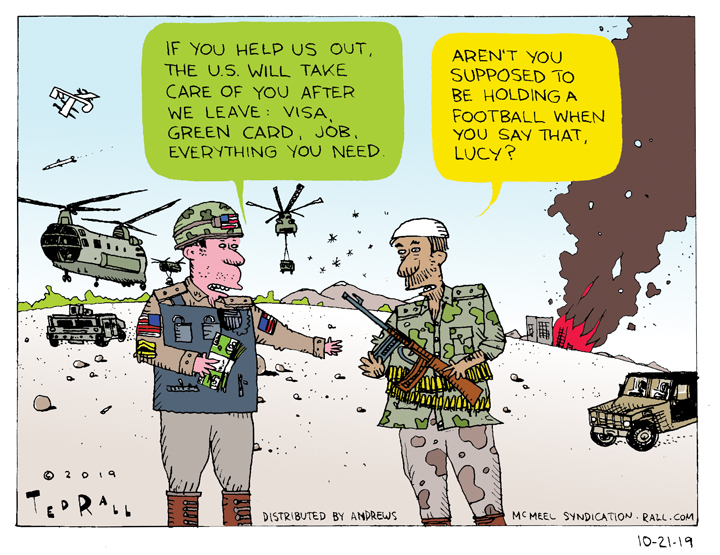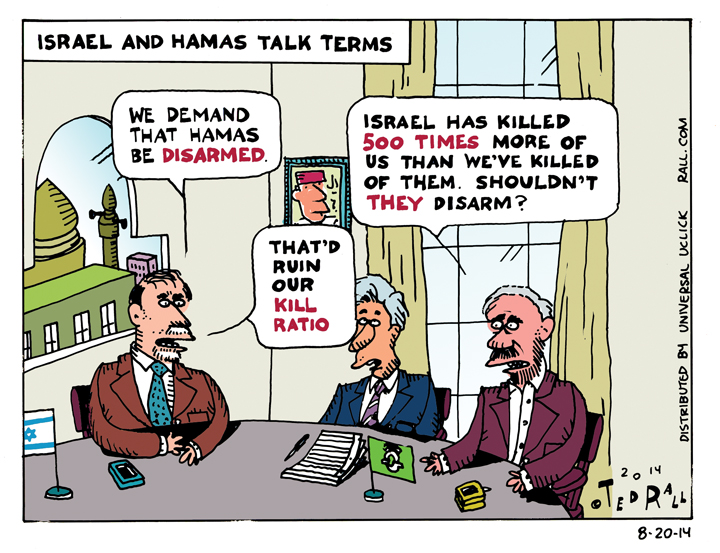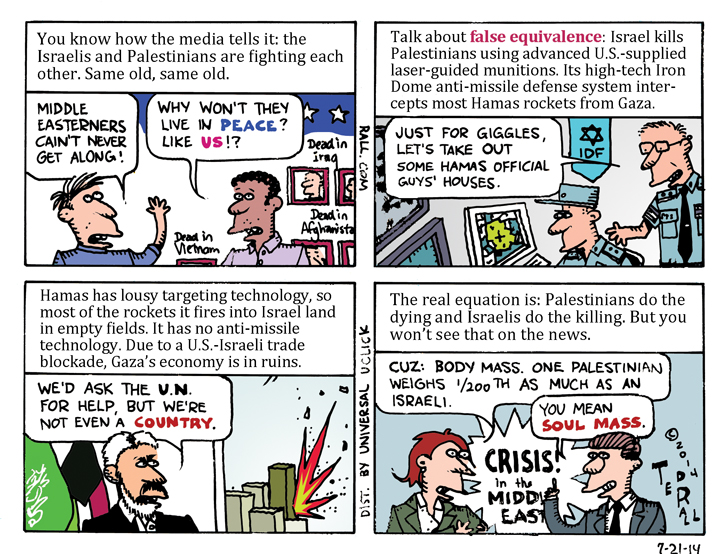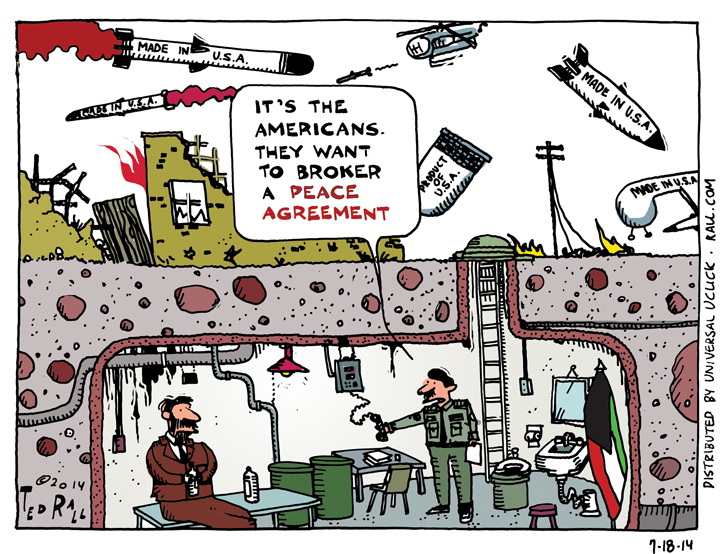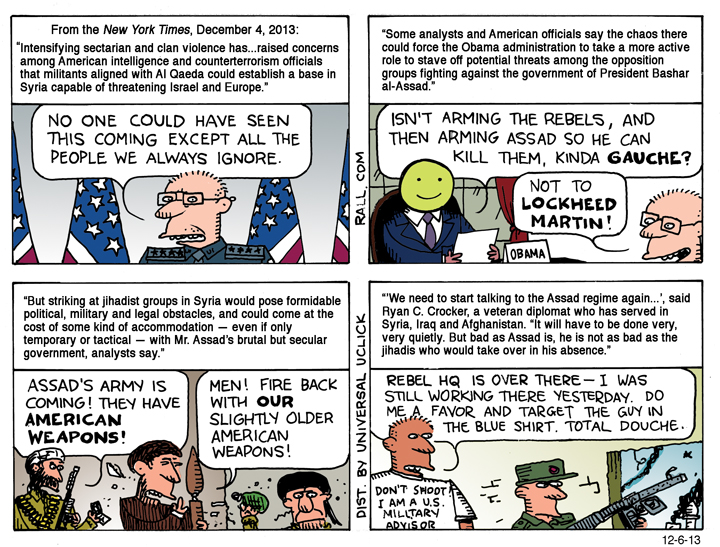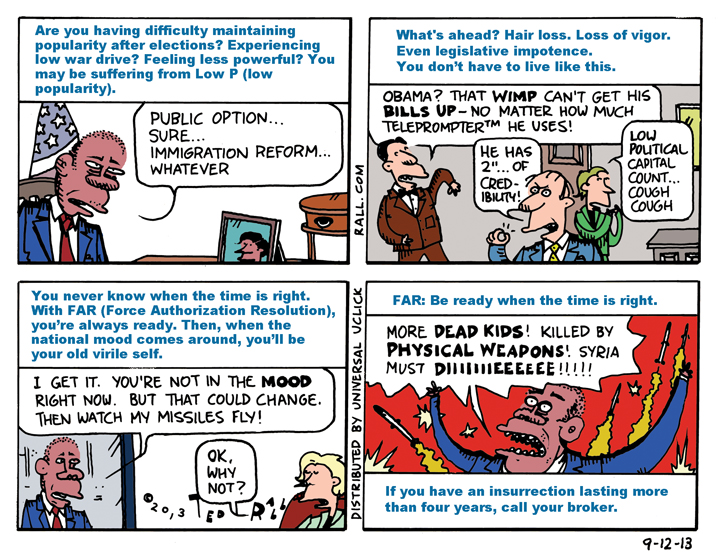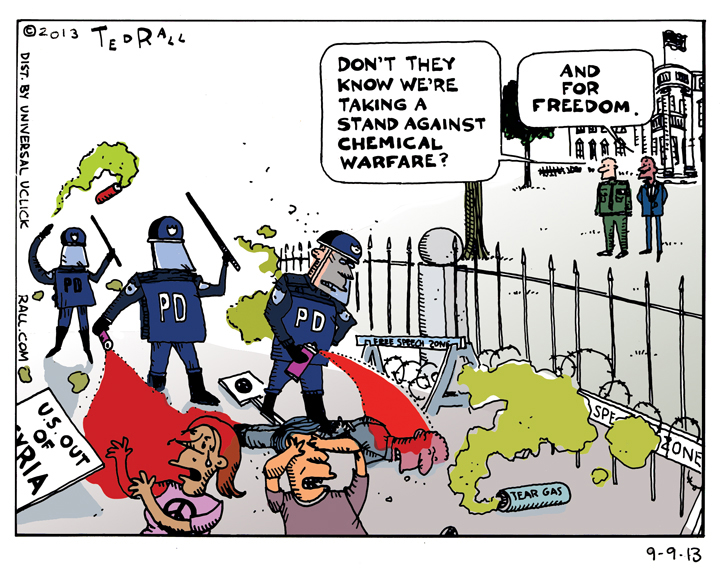Voting is always an ethical dilemma. For people thinking about voting for Joe Biden, one of the things that they might not be thinking about as they fantasize about the somewhat remote possibility of a liberal stalwart replacement for Ruth Bader Ginsberg is the higher probability that Biden, given his history, will start another war in the Middle East.
Iran Is Not What You Think

War, many people believe, often results from cultural differences and misunderstandings. President Trump’s assassination of General Qassem Suleimeni has Americans considering the possibility that we may soon add Iran to our list of unwinnable wars in the Middle East. As that calculus unfolds, no one questions the assumption that there are irreconcilable differences between our two peoples that can only be worked out via more bloodshed.
Nothing could be further than the truth. No other people in the world are more temperamentally similar to Americans than Iranians. Certainly, the Iranians’ religion is different. So is their language. But we are a lot more like them than most Americans, and that includes members of the news media, assume.
The problem is, very few Americans have been to Iran. The absence of diplomatic relations following the 1979 Islamic revolution and the ensuing hostage crisis that brought down Jimmy Carter’s presidency, coupled with trade sanctions that prohibit American airlines from providing direct air service make it all but impossible for the most intrepid of travelers to get inside the country and see what’s going on for themselves.
I’m not an expert on Iran. But this seems like an appropriate time to share what I learned nine years ago when I visited that country.
As I said, getting in wasn’t easy. I paid numerous visits to the closest thing Iran has to a consulate in New York, Iran’s Mission to the United Nations, to little avail. Ultimately I shelled out a $5700 “arrangement fee” (some would call it a bribe) to a Washington D.C.-based agency that worked through the Iranian Interests section of the Pakistani embassy there to secure visas for myself and two fellow cartoonists.
The main purpose of our trip was travel through Afghanistan for a book I was writing. Since our itinerary through that war-torn country would end with the Afghan city of Herat near the Iranian border, we wanted to leave via Iran after some tourism and rest and relaxation.
You can get an idea of how unusual our plan was from the incredulous reaction of the Afghan border policeman who greeted us after we crossed the border from Tajikistan. “Point of exit?” he asked. When we told him Iran, he laughed. “You are American! There is no way,” he replied. When he showed our Iranian visas to his colleagues, they couldn’t believe their eyes. “How did you get these?” they wanted to know.
Several weeks later, we walked across the border between northwestern Afghanistan and northeastern Iran. It seemed incredibly simple. We were already stamped in and on the curb outside the customs office waiting for a taxi when three bemused agents of Iran’s feared Ettela intelligence service tapped us on our shoulders and invited us into separate interrogation rooms. They grilled us for hours. Before they released us my agent asked me: “Do you know why we questioned you so diligently?” I didn’t. “You three,” he replied, “are the first Americans to cross this border since 1979.” I don’t know if that’s true. Clearly we were rare birds.
The first thing that struck me, especially compared to the bleak devastation of Afghanistan, was how modern Iran was, even in this remote corner of the nation. Americans have an impression of the Middle East as a bunch of dusty pockmarked ruins and sand, but Iran looked and felt like Turkey or Israel in terms of its terrain and infrastructure. The second was how nice everyone was, even/especially after learning we were American.
As required by the government, we had arranged for a travel agent to meet us and shepherd us around. He was a nice guy even though he liked to scam our money; we kept being put up in two-star hotels after we paid him for four.
From the start, Iran wasn’t what we assumed. On the train ride to Mashhad, our fixer disappeared for about an hour. Upon his return he apologized and explained that he had picked up a woman who had taken him to her cabin for a quickie. His promiscuity wasn’t unusual. We were repeatedly flirted with or propositioned by women. The desk clerks at our hotel asked our fixer about our long beards, which we had grown out in order to blend in in rural Afghanistan. “Are your friends fanatics?” they wanted to know. “Would they spend the night with us?”
Along with our beards we had acquired the traditional shalwar kameez white robes worn by conservative Afghans. Our fixer suggested we had a unique opportunity to smuggle ourselves into the haram (forbidden) section of the Imam Reza shrine so we could check out the stunning Timurid architecture. If anyone talked to us, our fixer advised, pretend not to understand them. Muslims come from all over the world to pray there so we could pretend to speak a different language. Worshipers circled the tomb of the 9th century Shia martyr Ali al-Ridha seemingly in a trance but, whenever someone spent too long in the center an attendant lightly dipped a pink feather duster strung from a pole onto the offender to ask him to move on.
Two incidents stood out for me.
At our hotel in Tehran we overheard a European couple complaining to the desk clerks that they had been mugged or pickpocketed, I don’t remember which, the night before. They had been robbed of €1200. The clerks repeatedly entreated them to report the loss to the police but the Europeans were understandably hesitant. The next day I encountered the pair in the elevator. “You won’t believe what happened,” the wife told me. “We went to the police and they gave us €1200.” There was a law that foreign tourists had to be made whole if they suffered a financial loss due to crime. Iranians we talked to were surprised that it wasn’t the same in the West.
We flew from Tehran to Istanbul. At our last security checkpoint in Iran airport security personnel ordered us to remove our baggage from the conveyor belt leading to the x-ray machine. Great, I thought, we’re going to be detained. “You are guests in our country,” the equivalent of the TSA guy advised us. “It would be rude to subject you to a search.” We were Americans, citizens of the Great Satan, at Ayatollah Khomeini International Airport!
Not everything was sweetness and light.
There was always a sense of tension that comes with knowing that law-breaking could come with grave consequences. For the most part, however, we followed the rules. Most of the people we saw obeyed them too, but just barely. Many women wore the tightfitting manteau and barely covered their hair.
When our Turkish Airlines flight lifted up from Tehran, many of the women on board dumped their chadors, revealing skin and sexy outfits and makeup. People smiled. Flight attendants began serving beer. This is what Iran would feel like if Iran’s government, which is not popular, were to go away tomorrow.
Trump’s latest actions and America’s myopic foreign policy, however, ensure that the religious government will probably remain in place for the foreseeable future.
So does the fact that very few Americans have gotten to know Iran.
(Ted Rall (Twitter: @tedrall), the political cartoonist, columnist and graphic novelist, is the author of “Francis: The People’s Pope.” You can support Ted’s hard-hitting political cartoons and columns and see his work first by sponsoring his work on Patreon.)
Where’s Your Football, Lucy?
President Trump’s order to withdraw American troops who created a buffer zone between Turkey and Kurdish-controlled areas of Iraq was a controversial movie seen as a betrayal of a long-time American ally. But there’s a long history of US forces making extravagant promises to local forces, then withdrawing and leaving them to the wolves.
War and Peace, Made in USA
As the largest, most expansionary military empire in history and the world’s number one arms supplier, often to both sides in conflicts, the United States is once again offering, hilariously, to broker a peace agreement, this time between Hamas in Gaza, and Israel. First you start the war, or at least expand it, then you get credit for making peace!
Obama To Arm Assad Against US-Armed Anti-Assad Rebels
When Obama began arming and financing the anti-Assad rebels in Syria, Assad and objective observers warned that the West would regret establishing an outpost of radical jihad in the Levant. Two years later, their worst predictions have come true â and Obama is considering reaching to Assad so he can kill the rebels who were armed and trained by the United States.
SYNDICATED COLUMN: We’re Not War Weary. We’re Suspicious.

Americans Aren’t “War Weary.” Obama is Just Lazy.
Americans, our pundit class has decided, aren’t going along with President Obama’s hard-on for firing cruise missiles into Syrian cities because they’re “war weary.”
Bullshit.
True, the wars have cost us. At 12 years and counting, the illegal and unjustified U.S. occupation of Afghanistan is America’s longest war. We’ve been in Iraq — following one of the most brazen acts of aggressive warfare in our blood-soaked history — for 10. Eight thousand American soldiers have gotten themselves killed; more than 50,000 have been wounded. (To conform to the journalistic standards of U.S.-based opinion writing, I shan’t mention the hundreds of thousands of Afghans, Iraqis, Pakistanis, Yemenis, Somalis and so on slaughtered by U.S. invasion forces.)
As tragically wasteful as those casualties have been, the price we’ve paid has been low by historical standards. Roughly 700 U.S. combat deaths a year is a drop in the bucket compared to, say, Vietnam (6,000 a year), Korea (12,000) and World War II (100,000). Unlike those earlier conflicts, the post-9/11 war on terrorism has been a remote, irrelevant abstraction to most Americans.
“Our work is appreciated, of that I am certain,” General Mike Mullen, former chairman of the Joints Chief of Staff told members, told graduates at West Point. “But I fear [civilians] do not know us. I fear they do not comprehend the full weight of the burden we carry or the price we pay when we return from battle.” A 2011 Pew Research Center survey found that just a third of Americans aged 18 to 29 have a direct family member who has served in uniform since 9/11 — the lowest rate in memory.
About 2.2 million Americans have served in Afghanistan or Iraq — not much fewer than the 2.7 million who went to Vietnam. The difference is that today’s volunteer military is less broadly representative of American society.
A woman recently introduced me to her brother. “He just got back from Iraq,” she said. “Afghanistan,” he corrected her. His sister! “Thank you for your service,” a man walking told him, without waiting for a reply. The vet’s face hardened. Nobody gets it.
Civilians never did, not fully — but the disconnect was never this big.
“War-weary”? You must first notice something before you can get tired of it.
Until the Syria debate, antiwar liberals like New York Congressman Charles Rangel have been decrying the gap between civilians and the military. His proposed solution? Bring back the draft. Rangel and others reason that if more young people — not just poor, undereducated, underprivileged yokels from the sticks — had “skin in the game,” it would be harder for politicians to start one war after another. “A renewed draft will help bring a greater appreciation of the consequences of decisions to go to war,” Rangel argues. After Obama proposed bombing Syria, Rangel renewed his proposal.
The United States has been at war throughout 90% of its history. I am 50 years old, born a few months before the assassination of JFK; my only peacetime president has been Jimmy Carter. War-weary? Like Orwell’s Oceania, the United States of America is always at war. We love war. War is what America does best, war is what America does most. War is 54% of the federal budget!
As noted above, there have been relatively few casualties in the wars against Afghanistan and Iraq. Because media coverage has been so sanitized and pro-military, these wars’ gruesome atrocities, the My Lais and napalm attacks — Mahmudiya, Panjwaii, white phosphorus that dissolved people in the battle of Fallujah — have barely been reported, so there have been few Vietnam-type images piped into our living rooms to elicit disgust or guilt. Even the fiscal effects have been deferred; the wars are officially off the books and thus aren’t tallied as part of the budget deficit.
Given how little the current wars have personally affected us, why would we be war-weary?
If Obama doesn’t get his war against Syria, he has no one to blame but himself.
The dude is just lazy.
Think of the list of American wars, just since 1990: the Gulf War, Serbia, Kosovo, Somalia, Afghanistan, Iraq, the drone wars in Pakistan and Yemen, Libya…it isn’t hard to con Americans into a war. Unlike Bush and his warmongering predecessors, however, Obama isn’t willing to do the propaganda work.
These things can’t be rushed. Bush spent a year and a half making his phony case to invade Iraq. Countless speeches, endless bullying, tons of twisted arguments and faked WMD reports.
Obama wanted to go to war four days after the chemical weapons attack outside Damascus. How many Americans were even aware of the story? Remember, this was late summer, peak vacation season. First you tear Americans away from the barbecue, then you get to barbecue the Syrians.
As has been widely noted, Obama’s messaging was all over the place, confusing a public programmed to digest its politics in bumpersticker-length slogans and talking points. Allowing yourself to be seen golfing right after calling for war hardly conveys the requisite sense of menace, much less the urgency of an imminent threat.
When JFK wanted the public to sign off on nuclear brinksmanship with the USSR, he went on television with spy plane photos of Cuba’s missiles. Despite considerable evidence that the rebels or a rogue officer were responsible, Obama says he has proof that the sarin gas attack was ordered by Syrian President Bashar Assad. Yet, unlike Kennedy, he won’t pony up the proof. Why not? As Russian President Vladimir Putin observes, that’s crazy fishy: “Claims that proof exists but is classified and cannot be shown are beneath criticism. If the U.S. says that the al-Assad regime is responsible for that attack and that they have proof, then let them submit it to the U.N. Security Council.”
Militarism is our thing, but Americans need to think their enemies threaten them directly before they’re cool with war.
Team Obama admits that Syria is not a direct or imminent danger to the U.S., but that we must attack them as a deterrent to other supposed future possible maybe enemies, namely Iran and North Korea. No dice. Only one in five Americans buys that. If Iran or North Korea is a threat, then attack those countries, not Syria.
Obama’s verbiage is telling: “I put it before Congress because I could not honestly claim that the threat posed by Assad’s use of chemical weapons on innocent civilians and women and children posed an imminent, direct threat to the United States.”
Could not honestly claim. As opposed to something like this: “Assad’s use of chemical weapons is not an imminent, direct threat, so we have time for a Congressional debate.”
Americans are good at reading between the lines. Another reason — not war-weariness — that Obama might not get his Syria war.
(Ted Rall’s website is tedrall.com. Go there to join the Ted Rall Subscription Service and receive all of Ted’s cartoons and columns by email.)
COPYRIGHT 2013 TED RALL

